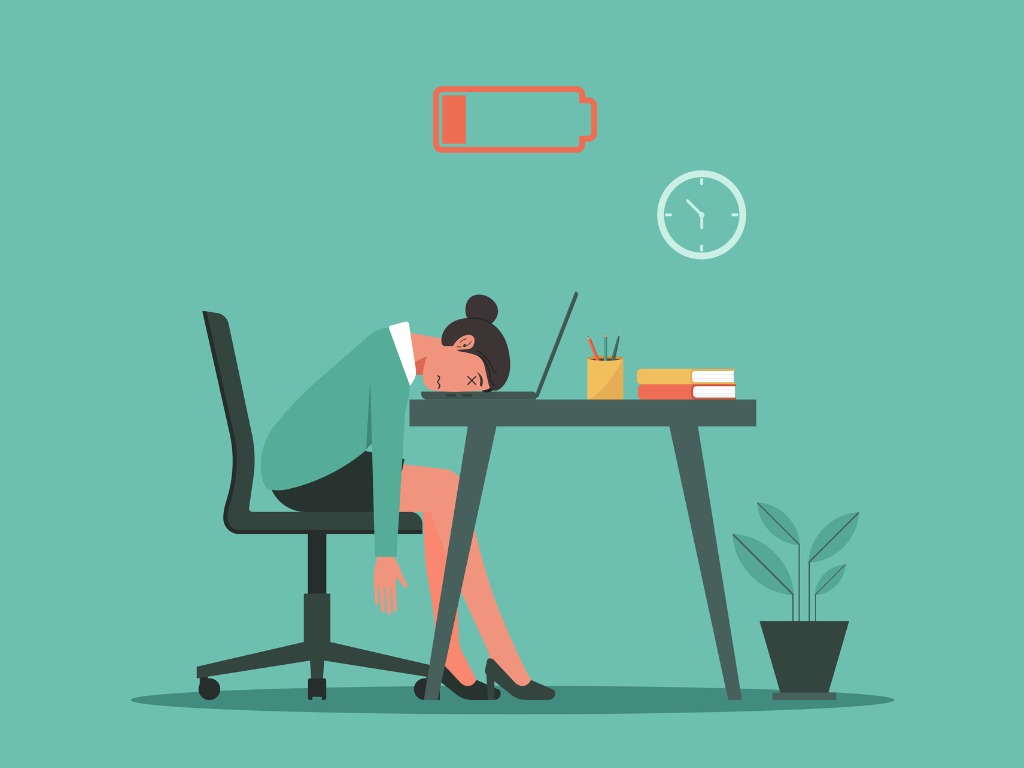
Dr Lynda Shaw details methods to cope with burnout in the short and long term
Burnout can be caused by periods of additional anxiety or pressure, difficulty separating work and personal life, or a work/life balance that is off-kilter. Feeling burnt out can influence every aspect of your life from your work to your relationships to your physical and mental health and can leave you feeling like you have very little left to give.
How to Deal with Burnout in the First Instance
1. Identify the signals early
Signs of burnout include fatigue, irritability, sleepless nights despite feelings of exhaustion, anxiety and physiological changes in your body like raised blood pressure.
2. Talk to someone about how you feel
If you feel nervous about telling your work that you need a break or need changes to be implemented, then talk to a close colleague, friend or family member first. Having a chat with someone who knows you well might offer you reassurance or another way of looking at things.
3. Prioritise sleep
Adequate sleep improves your concentration, memory and decision-making and your overall physical and mental health. Look closely at your ‘sleep hygiene’ and limit caffeine after midday, avoid screen time in the one to two hours before bedtime and have regular bedtimes and getting-up times.
4. Disconnect to recharge
To prevent chronic stress, you need to take some time to recharge and disconnect from work completely – so when you take time out, make sure you really are off, including holidays, evenings and weekends. Block out some time for hobbies and seeing family and friends to help your physical, mental and emotional wellbeing. The brain is more efficient when it has produced a cocktail of ‘feel-good’ neurotransmitters, so prioritising pleasant pursuits in your spare time means you will be far more productive during your working day.
Going Forward: How to Make Changes at Work for the Better
1. There is no shame in asking for help
Admitting you need help at work (or any time) can be hard, as you may feel like your competency will be called into question. Maybe there aren’t enough hours in the day to do what is being asked of you, or the work is simply beyond your scope and experience. If this is the case, ask for a meeting with your boss and set out exactly what it is you need support with. Showing you need training in some areas can help to build trust, create networks and strengthen relationships between you and your team.
2. Collaborate with workmates to spread the load
Also, keep your manager in the loop about what you are doing so they know you are being proactive. Being collaborative and working as a collective is an important skill, and your co-workers will know that if they are ever in your boat, they will be able to call on you too.
3. Establish boundaries
Create clear boundaries and stick to them, such as not checking your emails once you’ve clocked out and having agreed working hours. Turn off phone notifications you don’t need and don’t accept phone calls if it isn’t a good time.
4. Plan your day
Prioritise urgent tasks, be realistic about how long a task or project could take and factor in breaks. Know your most productive time of day so you do the most important or trickiest tasks when you are at your best. Don’t try to multitask. Focus on one thing at a time and give it your full attention.
5. Avoid distractions
Interruptions, false starts and procrastination cloud our perception of how much time we spend productively. Avoid disruptions. Stress-related brain fog is definitely a thing because when stressed, your brain struggles to process things as it normally would.
6. Sometimes you just need to take ten
If you are feeling stressed, know when to take time out to allow your mind time to recover and recuperate. Try going outside for a short walk to allow your mind to reset. Build regular short breaks into your everyday work.












